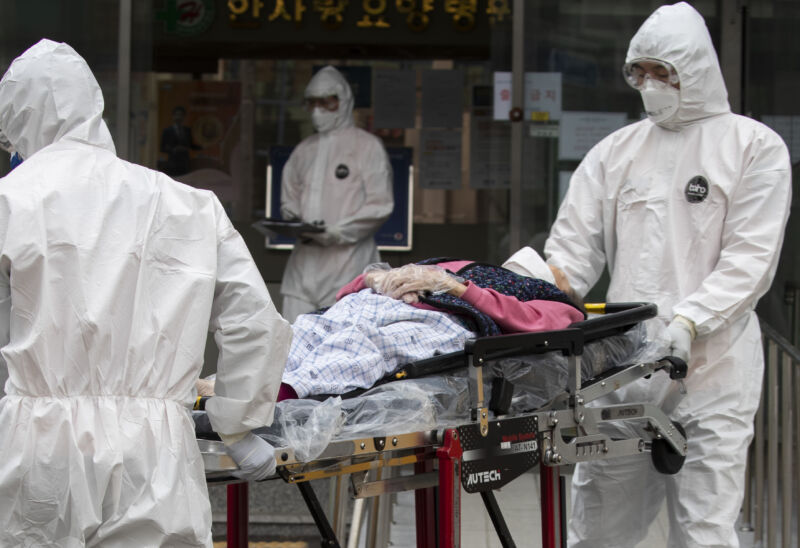
People who recover from COVID-19 but test positive for the virus again days or weeks later are not shedding viral particles and are not infectious, according to data released Tuesday by the Korea Centers for Disease Control and Prevention.
The so-called "re-positive" cases have raised fears that an infection with the new coronavirus, SARS-CoV-2, could "reactivate" in recovered patients or that recovering from the infection may fail to produce even short-lived immunity, allowing patients to immediately become re-infected if they are exposed.
The new data from Korea should ease those concerns.
KCDC researchers examined 285 cases that had previously recovered from COVID-19 but then tested positive again. The patients tested positive again anywhere from one to 37 days after recovering from their first infection and being discharged from isolation. The average time to a second positive was about 14 days.
Of those cases, researchers checked for symptoms in 284 of them. They found that 126 (about 48 percent) did indeed have symptoms related to COVID-19.
But none of them seemed to have spread the infection. KCDC investigated 790 people who had close contact with the 285 cases and found that none of them had been infected by the "re-positive" cases.
Crucially, additional testing of 108 "re-positive" cases found that none of them were shedding infectious virus.
The type of tests that suggested the 285 people were positive for COVID-19 a second time were what's called RT-PCR tests (reverse transcription polymerase chain reaction). These tests are typically used to diagnose a COVID-19 infection. They do so by recognizing and making copies of unique, targeted fragments of SARS-CoV-2's genetic material.
It's a precise and effective way to determine if someone's been infected with the virus. If someone has SARS-CoV-2 genetic material in their airways, they've been infected. That said, having genetic material doesn't necessarily mean that the person still has an active infection and infectious viral particles. They may just have lingering fragments of genetic material from destroyed viral particles.
That appears to be the case here. When KCDC researchers tried to isolate and grow whole, infectious particles of SARS-CoV-2 from the 108 cases they were able to test-all 108 were negative for whole virus.
Further, when they did further blood work on 23 of the re-positive cases, nearly all of them (96 percent) had neutralizing antibodies against SARS-CoV-2. This hints that they may have some immunity to a reinfection with the virus.
It's unclear what was causing symptoms in many of the patients. A few cases tested positive for other respiratory viruses, but many did not.
Still, based on the data, the KCDC determined that re-positive cases are not infectious and do not need to re-enter isolation.